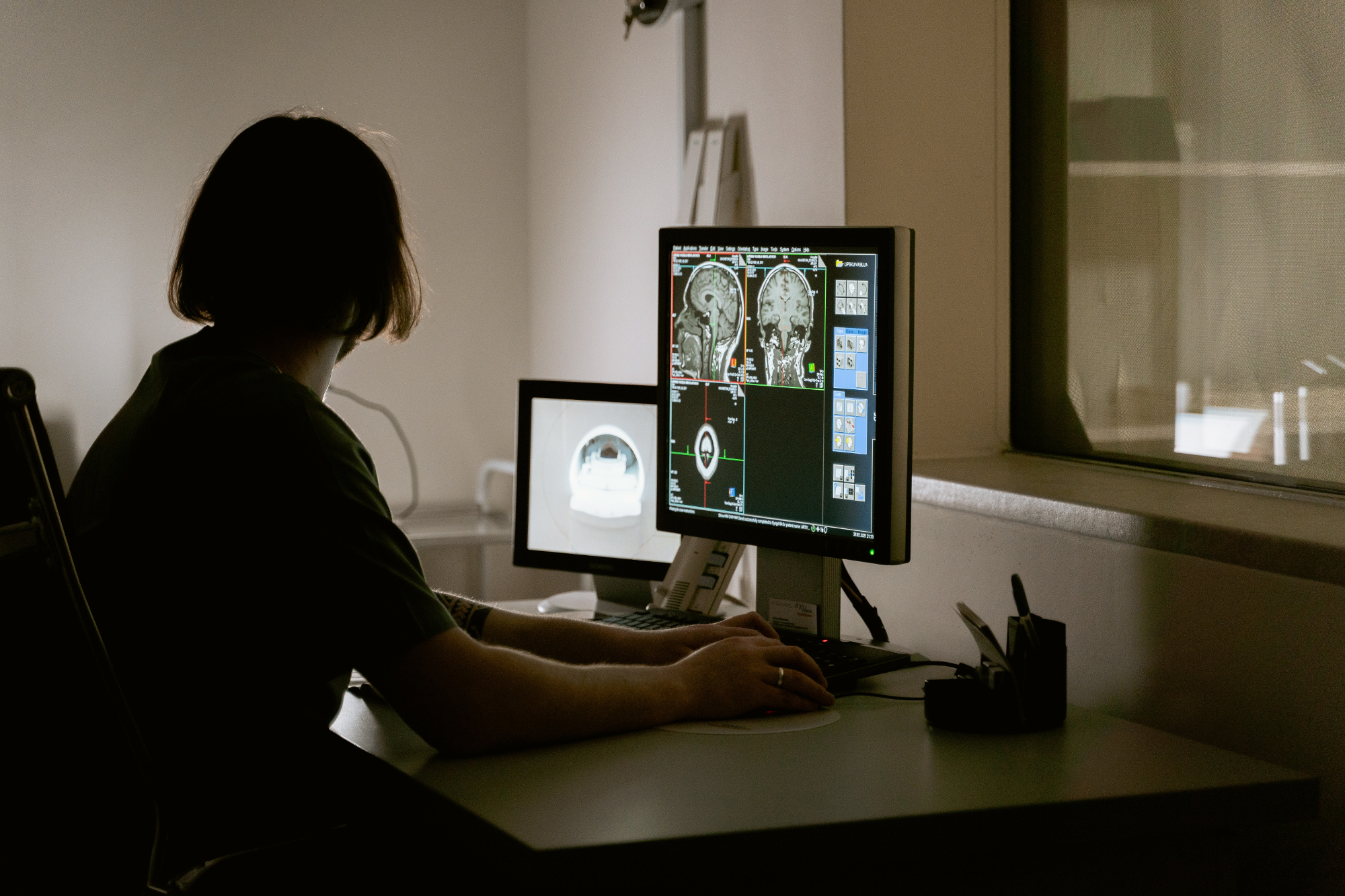FOR IMMEDIATE RELEASE
GAINESVILLE, FL. Automated Imaging Diagnostics, a leading innovator in medical technology, is proud to announce that its flagship product, neuropacsTM, has been awarded a Phase I Small Business Technology Transfer (STTR) grant from the National Institutes of Health, an NIH institute. This grant will drive forward the evolution of neuropacsTM and the groudbreaking capabilities in Parkinsonism differential diagnosis.
The focus of this grant is to conduct an in-depth assessment of deep learning classification methods for Parkinsonism, leveraging the cutting-edge technology within neuropacsTM. AID aims to refine neuropacsTM to accurately differentiate the three major parkinsonian variants, thereby significantly enhancing clinical care standards. This grant represents a pivotal milestone towards commercialization, highlighting its potential to transform the landscape of neurological diagnostics.
Parkinsonism encompasses a spectrum of neurological disorders, and accurate diagnosis is crucial for effective treatment and management. With the support of NIH/NINDS, neuropacsTM is poised to redefine Parkinsonism detection and diagnosis. By harnessing state-of-the-art Deep Learning techniques, neuropacsTM aims to deliver a solution that not only enhances diagnostic accuracy but also streamlines clinical workflows, ultimately improving patient outcomes.
“We are honored to have received this prestigious grant from NIH, which underscores the significance of neuropacsTM in advancing Parkinsonism detection,” said Angelos Barmpoutis, PhD, the Principal Investigator of this award at AID. “This grant will fuel our efforts to further enhance neuropacsTM, empowering healthcare professionals with a powerful tool for precise and timely diagnosis.”
For more information about neuropacsTM and its revolutionary capabilities, visit neuropacs.com.
About Automated Imaging Diagnostics:
AID is a pioneering medical software company dedicated to developing innovative solutions for neurological diagnostics using AI. With a commitment to advancing healthcare through cutting-edge technologies, AID remains at the forefront of revolutionizing clinical care standards.
Source: Automated Imaging Diagnostics, LLC
Forward-Looking Statements
This communication includes express and implied “forward-looking statements.” Forward-looking statements include all statements that are not historical facts and in some cases, can be identified by terms such as “may,” “might,” “will,” “could,” “would,” “should,” “expect,” “intend,” “plan,” “objective,” “anticipate,” “believe,” “estimate,” “predict,” “potential,” “continue,” “ongoing,” or the negative of these terms, or other comparable terminology intended to identify statements about the future. By their nature, these statements are subject to numerous risks and uncertainties, that could cause actual results, performance or achievement to differ materially and adversely from those anticipated or implied in the statements. You should not rely upon forward-looking statements as predictions of future events. Although our management believes that the expectations reflected in our statements are reasonable, we cannot guarantee that the future results, performance, or events and circumstances described in the forward-looking statements will be achieved or occur. Recipients are cautioned not to place undue reliance on these forward-looking statements, which speak only as of the date such statements are made and should not be construed as statements of fact. We undertake no obligation to publicly update any forward-looking statements, whether as a result of new information, any future presentations, or otherwise, except as required by applicable law.

